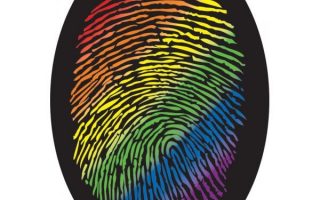Wondering about how to spot a Covert Narcissist hiding in plain sight? According to Psych Central, there are five fairly obvious poker tells Covert Narcissists display.
Appalachian State University’s Psychology Department notes, “In contrast to the Arrogant / Overt Narcissist, the Shy / Covert Narcissist is characterized by vulnerability and sensitivity which manifests itself in defensiveness and hostility. Like the Arrogant / Overt Narcissist, the Shy / Covert Narcissist has grandiose fantasies, feels a sense of entitlement, and is exploitive.”
Regarding Covert Narcissists, Psych Central summed up those traits into easy to spot as well (as to remember) personality trends.
People who have a false sense of humility are readily apparent in most cases. So are those who lack empathy or have immature responses to social stimuli. The other two most common signs are their consistent minimization of other people’s needs coupled most often with an unwillingness to listen to other people in general.
Here’s their quick rundown of symptoms, excerpted from an article titled “5 Signs of Covert Narcissism” [lovingly created by the blog writers of Psych Central]:
1. False Humility
This is actually a form of pride but will be shown in a self-deprecating way. Narcissists will play the victim and put themselves down so that they bait you into complimenting them. They will say they are doing things because they want to, but they are approval-seeking. They are concerned about themselves and are not truly humble.
Their goal is to let you know they are important and seek high status positions. Yet they disguise themselves in humility — which isn’t anything like an inner humble character of one who puts others before themselves. Their goal is to make sure they are stroked for their efforts.
2. Lack of Empathy
Narcissists will ignore any valid concerns you may have. They will choose to follow their agenda in every circumstance because they have are selfish. They don’t want to learn compassion and want to stay isolated and withdrawn. They will ignore you when you aren’t feeling well but want to be doted on when they are not well. There is no meeting halfway since they only want to be served, not to serve.
3. Immature Responses
Narcissists are highly sensitive and take offense at simple criticisms. They magnify a perceived or real offense more than it deserves. They are not able to dialogue but deflect blame onto others for their reactions.
They attempt to cover their anger by pretending things don’t bother them, yet their nonverbal body language shows anger even though they don’t admit it. They can become passive-aggressive in their responses and not follow through with actions.
4. Simplification of Others’ Needs
Narcissists will minimize the needs of the people around them. They will not explore the details of a particular situation because they don’t deem it worthy of their time. They will label people and deflect blame onto them instead of taking responsibility for their own actions. They reduce complex issues to simple ones in order to brush them aside as stupid or useless. They don’t want to be bothered with facts or logic, only their own limited scope of what is important so as not to invest their time or energy in anything contrary to their personal agenda.
5. Unable to Listen
Narcissists tend to “shoot from the hip” with quick advice and not ask questions during conversations, but instead shut down dialogue so they do the minimum amount. They do not want to expend any energy toward relationships. They do not care about what you have to say because they want to follow what is best for them regardless of what you are sharing. In the end, they don’t care enough to listen to you.
The App State Psych department also noted that when it comes to spotting Covert Narcissists in their natural habitat, all one must typically do is look around the office or inside the walls of a family home. Narcissism expressed by shy people tends to come across as passive aggression.
The source shares, “While feeling they deserve to be recognized for their specialness, unlike the Arrogant/Overt Narcissist, the Covert/Shy Narcissist is plagued by self-doubts and thus does not as readily seek the affirmation from others he or she believes is due. Moreover, because of this strong sense of worthlessness, this type of narcissist often will not seek out appropriate friends or romantic partners because they fear exposure as frauds; for this reason their associates tend to be conspicuously inferior to themselves.”
According to their psychiatric profile of Covert Narcissists, the site suggests despite the very real fact that most tend to lack the charm or charisma of their overt counterparts, that all of them, “secretly [harbor] fantasies that [they are] engaged in a heroic rescue of someone of lesser capabilities.”
But therein lies the rub. Constantly suspicious of other people’s motives and intentions and projecting the worst of their own personality traits onto even the most sincerely lovely, kind-natured, and good people, “… when their friends and associates offer praise, the Shy/Covert Narcissist believes that this admiration is phony and insincere.”
For that reason alone, the university psychologists say, Covert Narcissistic people, “… tend to devote a considerable amount of time ruminating over the unfairness of how little their true worth is appreciated and how others get the recognition for things that they themselves did.”
As such, scanning the room visually to see who looks like they just swallowed a bug after someone compliments them or succeeds personally in anything can help a person figure out really quickly who hides their secret sense of entitlement or extreme feelings of superiority over others and who does not. The more covert the personality disorder, the more likely a person is to appear to be meek and mild (quite possibly resembling an Enabler).
However, the more closely one pays attention to things like whether or not they possess the ability to be truly happy for other people, to be a support person or helper rather than an undermining saboteur, or they are able to truly and compassionately listen to other people, the easier it is to sort the wheat from the chaff when it comes to weeding out people who hide personality disorders.





